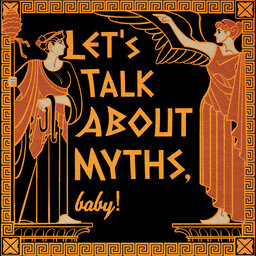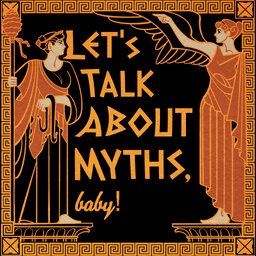RE-AIR: Sister, Saviour, Survivor, the Gorgon Medusa
Revisiting one of the most controversial women of myth... Medusa is never just one thing: her history, variations on her story, interpretations... There's a whole wide world of Medusa and this episode attempts to touch upon just a fraction of ancient sources and versions. Monster? Beautiful woman? Survivor? Mother? One of three mortal queens? Medusa is everything. Find the thread of relevant Medusa tweets and responses to them here. Liv has also discussed Medusa on the The Partial Historians podcast, listen here, and Next Door Villain, listen here.
CW/TW: far too many Greek myths involve assault. Given it's fiction, and typically involves gods and/or monsters, I'm not as deferential as I would be were I referencing the real thing.
Sources: Ovid's Metamorphoses, translated by Allen Mandelbaum, Theoi.com, The Medusa Reader edited by Marjorie Garber and Nancy J. Vickers.
Attributions and licensing information for music used in the podcast can be found here: mythsbaby.com/sources-attributions.
Let's Talk About Myths, Baby! Greek & Roman Mythology Retold
The most entertaining and enraging stories from Greek mythology and the wider Ancient Mediterranean …Social links
Follow podcast
Recent clips

AHFG Book Club: Jenny Williamson's Enemy of My Dreams
1:16:02

RE-AIR: Conversations: A Long and Storied History of Sparta, Modern Misuse & Misconception w/ Stephen Hodkinson
1:40:25

Hermes Historia: Giorgos the Oikist, Colonization in Greek Antiquity
42:43
 Let's Talk About Myths, Baby! Greek & Roman Mythology Retold
Let's Talk About Myths, Baby! Greek & Roman Mythology Retold